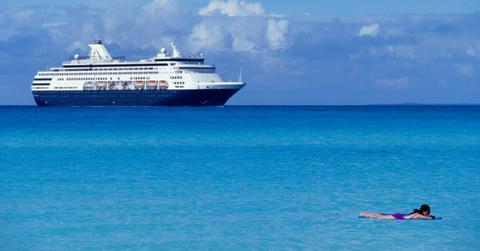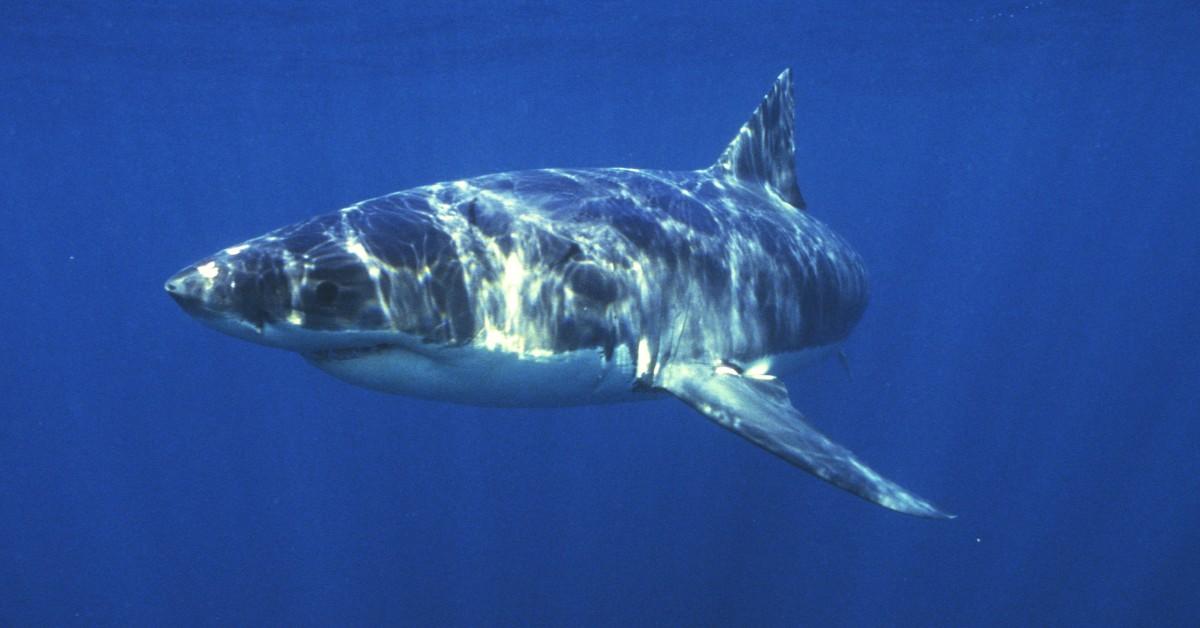Fact Check: Are Sharks Really Following Cruise Ships?
Read this before you book your next cruise!
Published April 17 2024, 3:18 p.m. ET

Picture this: You've boarded your cruise and officially set sail. And while you're watching your last glimpse of land slowly sink behind the horizon as the massive ship takes you further out to sea, you begin to notice a dark shape following in the water below. Is a shark following your cruise ship? It's certainly a logical time to ask yourself this question, especially if your trip involves any swimming excursions.
You wouldn't be the first person to wonder if sharks were following your cruise ship. In fact, spotting them off the sides of boats is a common experience. But, as to whether or not the apex predators have locked your specific vessel in their sights, well, the answer to that is a bit more complicated. Continue reading to learn whether sharks follow cruise ships as they sail across the sea, and what you need to know about shark safety while you're on board.

Do sharks follow cruise ships?
If you were hoping to spot a shark while sailing the high seas, we may have some disappointing news for you. According to the Cruise Mummy blog, sharks are physically unable to follow cruise ships... even if they wanted to. She says that on average, sharks max out at around 5 miles per hour while swimming. That's a lot slower than the speed at which a cruise ship travels, which is typically around 20 knots (about 23 miles per hour).
And that assumes that sharks would even want to hang out around a cruise ship, which could be pretty noisy if you think about it. Between the sounds from the boat itself — which can include yelling, laughter, and music — and the noise that the large engine makes as it propels the boat across the sea, the area around the boat is far from a welcoming environment.
And it's not like sharks would be interested in following cruise ships in the hopes of getting a bite to eat, either. Any food waste that has been disposed of during a boating trip will likely have been pureed down to a fine paste before being dispelled into the water, which isn't exactly what sharks are looking for while they're on the hunt.
Why do people think sharks follow cruise ships?
While sharks may not follow cruise ships, they can certainly be spotted from them. Especially when cruise ships pass through areas where sharks may be feeding, or if they're traveling through their breeding grounds. But that doesn't mean that your chances of encountering a shark while you're sailing are small. The fact remains that there could be hundreds of billions of sharks in the ocean, according to The Sea blog, which means your chances of spotting one while you're on a boat are high.
There's also anecdotal evidence that makes it seem like sharks may be following unsuspecting boats to make it seem like this theory has some merit. Take for example the tragic accident that happened during a sunset cruise in 2023, when a man jumped over the side of the ship. Video taken of the incident and later shared on TikTok by @_kimbra_ appeared to show his final moments as he was pulled underwater by bull sharks that had been swimming in the water alongside the ship.
While it seems safe to say that sharks won't be following you from one port to another, it does stand to reason that if you're going to be in the ocean, chances are that you will spot some creatures. So, it makes sense to behave the same way you would on land, and always treat the animals you encounter with the same amount of respect (and distance) you would want to be treated with.
That means giving sharks a wide berth if you're entering the water, and avoiding swimming in areas where sharks are known to be feeding or mating. It's really the easiest way to ensure that you get to go on about your day without any additional risk of injury... or worse!